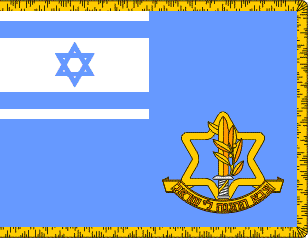The Drums of War Are Heard Again In Israel

The drums of war are heard again in Israel and they are sounded because once more Israel’s invincibility is in question. Despite the triumphant rhetoric in the various media commemorative reports, two years after ‘Cast Lead’, the sense is that that campaign was as much of a failure as was the second Lebanon war of 2006. Unfortunately, leaders, generals and the public at large in the Jewish State know only one way of dealing with military debacles and fiascos. They can be redeemed only by another successful operation or war but one which has to be carried out with more force and be more ruthless than the previous one with the hope for better results in the next round.
Force and might, so explained leading commentators in the local media (parroting what they hear from the generals in the army), is needed in order to ‘deter’, to ‘teach a lesson’ and to ‘weaken’ the enemy. There is no new plan for Gaza – there is no real desire to occupy it and put in under direct Israeli rule. What is suggested is to pound the Strip and its people once more, but with more brutality and for a shorter time. One might ask, why would this bear different fruits than the ‘Cast Lead Operation’? But this is the wrong question. The right question is what else can the present political and military elite of Israel (which includes the government and the main opposition parties) do?
They have known now for years what to do in the West Bank – colonize, ethnically cleanse and bisect the area to death, while remaining publicly loyal to the futile discourse of peace or rather the ‘peace process’. The end result is expected to be a docile Palestinian Authority within a heavily Judaized West Bank. But they are at a total loss about how to manage the situation in the Gaza Strip, ever since Ariel Sharon ‘disengaged’ from it. The unwillingness of the people of Gaza to be disengaged from the West Bank, and the World, seems to be more difficult to defeat, even after the horrible human toll the Gazans paid in December 2008 for their resistance and defiance.
The scenario for the next round is unfolding in front of our eyes and it resembles depressingly the same deterioration that preceded the massacre of Gaza two years ago: daily bombardment on the Strip and a policy that tries to provoke Hamas so that more expanded assaults would be justified. As one general explained, there is now a need to take into account the damaging effect of the Goldstone report: namely the next major attack should look more plausible than the 2009 one (but this concern may not be that crucial to this particular government; nor would it serve as an obstacle).
As always in this part of the world, other scenarios are possible – less bloody and maybe more hopeful. But it is hard to see who can generate a different short term future: the perfidious Obama administration? The helpless Arab regimes? timid Europe or the handicapped UN? The steadfastness of the people of Gaza and that of the Palestinian people in general means that the grand Israeli strategy to wither them away – as the founder of the Zionist movement, Theodore Herzl, hoped to do to the indigenous people of Palestine already in the very end of the nineteenth century – will not work. But the price may yet rise and it is time for all those who voiced a powerful and effective voice AFTER the Gaza massacre two years ago, to do it NOW, and try and avert the next one.
This voice is described in Israel as the attempt to ‘delegitimize’ the Jewish State. It is the only voice that seems to concern seriously the government and the intellectual elite of Israel (far more annoying to them than any soft condemnation by Hillary Clinton or the EU). The first attempt to counter this voice was to claim that delegitimization was anti-Semitism in disguise. This seems to have backfired since Israel demanded to know who in the world supports its policies; well it transpired that the only enthusiastic supporters of Israeli policy in the Western world nowadays are extreme right wing, traditionally anti-Semitic, organizations and politicians The second attempt is to try and argue that these attempts in the form of Boycott, Divestment and Sanctions, would make Israel more determined to continue and be a rogue state. However, this is a vacuous threat: Israeli policies are not generated by this moral and decent voice; on the contrary, this voice is one of the few factors that restrain the aggressive policy, and who knows when, if in the future western governments would joined their publics as they did eventually in the case of Apartheid South Africa, it may even bring an end to these policies and enable Jews and Arabs alike to live in peace in Israel and Palestine.
This voice is effective because is shows clearly the link between the racist character of the state and the criminal nature of its policies towards the Palestinians. The voice turned recently into an organized and clearly defined campaign with a clear message: Israel will remain a pariah state as long as its constitution, laws and the policies will continue to violate the basic human and civil rights of the Palestinians, wherever they are, including the right to live and exist.
What is needed now is for the noble but totally futile energy invested by the Israeli peace camp and its like in the west in the concept of ‘co-existence’ and the projects of ‘dialogue’ to be reinvested in the attempt to prevent another genocidal chapter in the history of Israel’s war against the Palestinians, before it is too late.
Ilan Pappé is the coauthor with Noam Chomsky of Gaza in Crisis: Reflections on Israel’s War Against the Palestinians (Haymarket Books).

